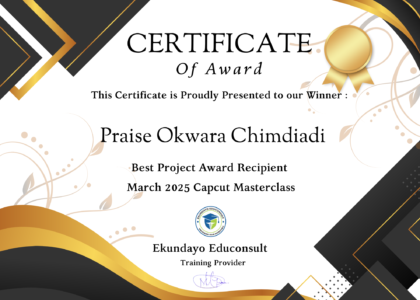Medical Research Workshops
Medical Research Workshops: Empowering Healthcare Professionals in Research Excellence
In the ever–evolving field of healthcare, research is the backbone of innovation and progress. From developing new treatments to improving patient care, research plays a crucial role in addressing global health challenges. Medical research workshops provide healthcare professionals with the knowledge and skills needed to contribute effectively to this vital area.
This guide delves into the importance of medical research workshops, their key components, and how they can help healthcare professionals elevate their research expertise.
1. Why Are Medical Research Workshops Essential?
1.1 Bridging the Knowledge Gap
Many healthcare professionals have limited formal training in research. Workshops bridge this gap by offering practical, hands-on experience.
1.2 Enhancing Clinical Practice
Research skills empower practitioners to integrate evidence-based practices into their work, improving patient outcomes.
1.3 Driving Career Growth
Participation in research enhances professional credibility, opens up career opportunities, and fosters leadership roles.
1.4 Advancing Healthcare Innovations
Workshops equip professionals to contribute to groundbreaking studies that shape the future of medicine.
2. Key Benefits of Medical
2.1 Hands-On Learning
Workshops provide practical training, allowing participants to apply what they learn in real-world settings.
2.2 Expert Guidance
Participants benefit from the mentorship of experienced researchers and industry leaders.
2.3 Networking Opportunities
Collaborate with peers, researchers, and organizations to build lasting professional relationships.
2.4 Access to Resources
Gain exposure to advanced tools, software, and methodologies used in modern research.
3. Core Components of a Medical Research Workshop
3.1 Research Methodology
Learn the basics of designing studies, including hypothesis formulation, sampling techniques, and ethical considerations.
3.2 Data Collection Techniques
Explore various methods of gathering qualitative and quantitative data, such as surveys, interviews, and clinical trials.
3.3 Statistical Analysis
Gain proficiency in tools like SPSS, R, or Python to analyze data and draw meaningful conclusions.
3.4 Writing and Publishing Research Papers
Understand how to structure a research paper, choose the right journal, and navigate the publication process.
3.5 Grant Writing and Funding
Learn how to write compelling grant proposals to secure research funding.
3.6 Ethical and Regulatory Compliance
Familiarize yourself with ethical guidelines and regulations governing medical research, including informed consent and patient confidentiality.
4. Who Can Benefit?
4.1 Medical Practitioners
Doctors, nurses, and allied health professionals looking to incorporate research into their practice.
4.2 Academics and Educators
Healthcare educators seeking to stay updated with research advancements.
4.3 Students and Trainees
Medical students and postgraduate trainees aiming to build a strong foundation in research.
4.4 Administrators and Policymakers
Healthcare administrators and policymakers who use research to inform decisions.
5. Popular Topics Covered in Research
- Clinical research fundamentals
- Epidemiological studies
- Data visualization and presentation
- Systematic reviews and meta-analyses
- Translational research and its applications
- Advances in biostatistics
- Healthcare informatics
6. How to Choose the Right Medical Research Workshop
6.1 Define Your Goals
Identify what you want to achieve, whether it’s mastering a specific skill or gaining a broad overview.
6.2 Evaluate the Curriculum
Ensure the workshop covers topics relevant to your needs and career aspirations.
6.3 Check the Credentials of Trainers
Opt for workshops led by experienced professionals with a proven track record in research.
6.4 Consider Accessibility and Flexibility
Look for options that fit your schedule, whether online or in-person.
6.5 Seek Participant Reviews
Read testimonials and reviews from past participants to gauge the workshop’s quality.
7. How Ekundayo Educonsult Facilitates Medical Research Excellence
At Ekundayo Educonsult, we offer expertly designed medical research workshops tailored for healthcare professionals at all levels.
Our Offerings Include:
- Interactive Training Modules: Covering every stage of the research process.
- Access to Industry Experts: Learn from leading researchers and academicians.
- Flexible Learning Options: Attend workshops online or in-person based on your convenience.
- Post-Workshop Support: Ongoing mentorship to help you implement what you’ve learned.
8. Success Stories
“The workshop on clinical trials was an eye-opener. I can now confidently design and conduct studies in my hospital.” – Dr. James, Abuja
“Ekundayo Educonsult’s medical research workshop gave me the tools to publish my first paper. Highly recommend their programs!” – Nurse Amina, Lagos
“I learned so much about data analysis and grant writing. This workshop was the stepping stone I needed for my career in research.” – Tunde, Ibadan
9. The Future of Medical Research Workshops
As healthcare continues to evolve, the need for skilled researchers will only grow. Workshops will increasingly incorporate cutting-edge technologies like AI, machine learning, and big data analytics, ensuring that healthcare professionals remain at the forefront of innovation.
10. Take the Next Step in Your Research Journey
Medical research workshops are not just training sessions—they’re opportunities to expand your horizons, enhance your expertise, and make meaningful contributions to the field of healthcare.
At Ekundayo Educonsult, we’re committed to empowering healthcare professionals with the tools and knowledge they need to excel in research. Whether you’re a beginner or an experienced researcher, our workshops are designed to meet your unique needs.
Enroll now and take the first step toward becoming a leader in medical research!





